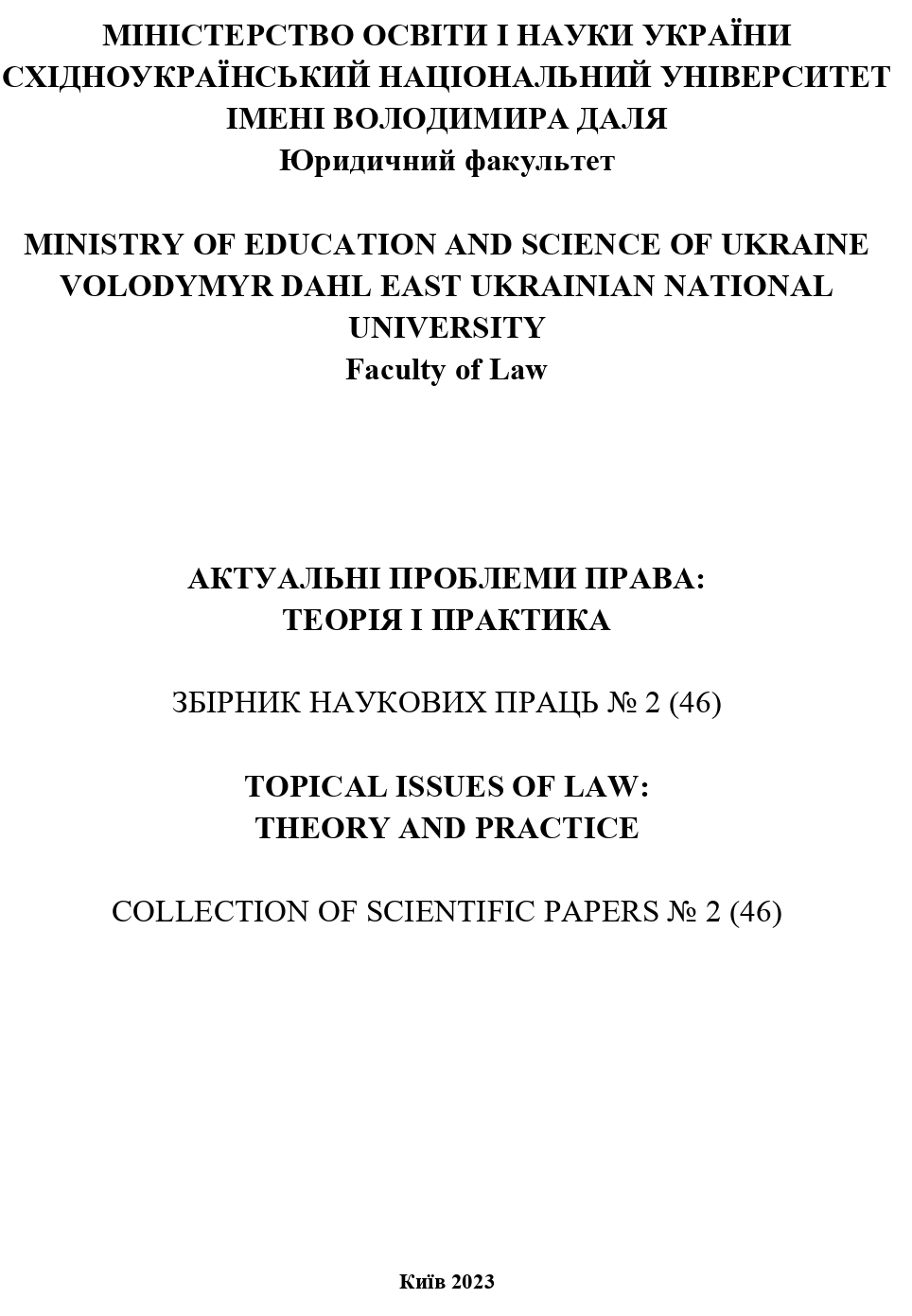PREVENTIVE PROTECTION OF CIVIL RIGHTS: DEVELOPMENT PERSPECTIVES
DOI:
https://doi.org/10.33216/2218-5461/2023-46-2-92-100Abstract
This article addresses the issues of preventive protection of civil rights, the positive obligations of the state, and the prospects for its development. It defines the role of this institution in preventing negative (undesired) legal consequences, especially in the context of declaring a state of war when there is an urgent need to make changes to the existing legislation, which, in turn, raises questions about the quality of legislative acts. Using specific examples, the authors draw attention to the negative trend associated with existing laws or draft laws, the quality of which raises certain concerns as they seem to violate civil rights. This contradicts the established practice of the European Court of Human Rights regarding the quality of the law concerning the non-violation of the right to property, ensuring "peaceful enjoyment of property," and not narrowing the content and scope of rights. In light of the identified problems, the need for the development of a Strategy for the preventive protection of civil rights is proposed (separating it from human rights issues), with the key principle being the state's responsibility for an ineffective mechanism of preventive protection of civil rights. It is suggested to consider monitoring violations and human rights education as mandatory elements of the Strategy for preventive protection of civil rights. From this perspective, the issue of preventive protection has a right to exist and requires further scientific consideration.
Keywords: state of war, preventive protection, human rights, prevention of civil rights violations, positive state obligations, strategy.

